Al Alvarez: 'If I drop dead this minute, I’ve had a terrific time' | reviews, news & interviews
Al Alvarez: 'If I drop dead this minute, I’ve had a terrific time'
Al Alvarez: 'If I drop dead this minute, I’ve had a terrific time'
An encounter with the literary daredevil and critic who published Sylvia Plath
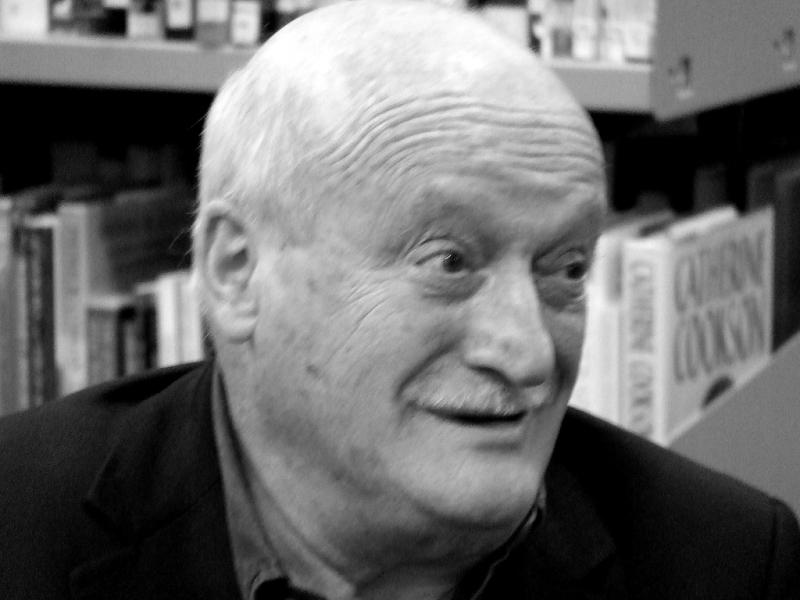
We like to think of ourselves as a nation of eccentrics, but some take their patriotic duties more seriously than others. Al Alvarez – poet, critic, poker player, rock climber, old-school literary mensch, who has died at the age of 90 – took his first dip in the ponds on Hampstead Heath at 11.
Alvarez swam as he lived and wrote, on the assumption that there’s no tomorrow, so life had better be grabbed by the lapels. When the stock of tomorrows had almost run dry he published his swimming diary and called it Pondlife. It felt very much like his final word. But what a way to bow out. Both beautiful and savagely angry, this elegy to the self came from the pen of an author who, having once made an attempt on his own life, now loved it with fierce tenacity – and loathed his body’s decision not to co-operate.
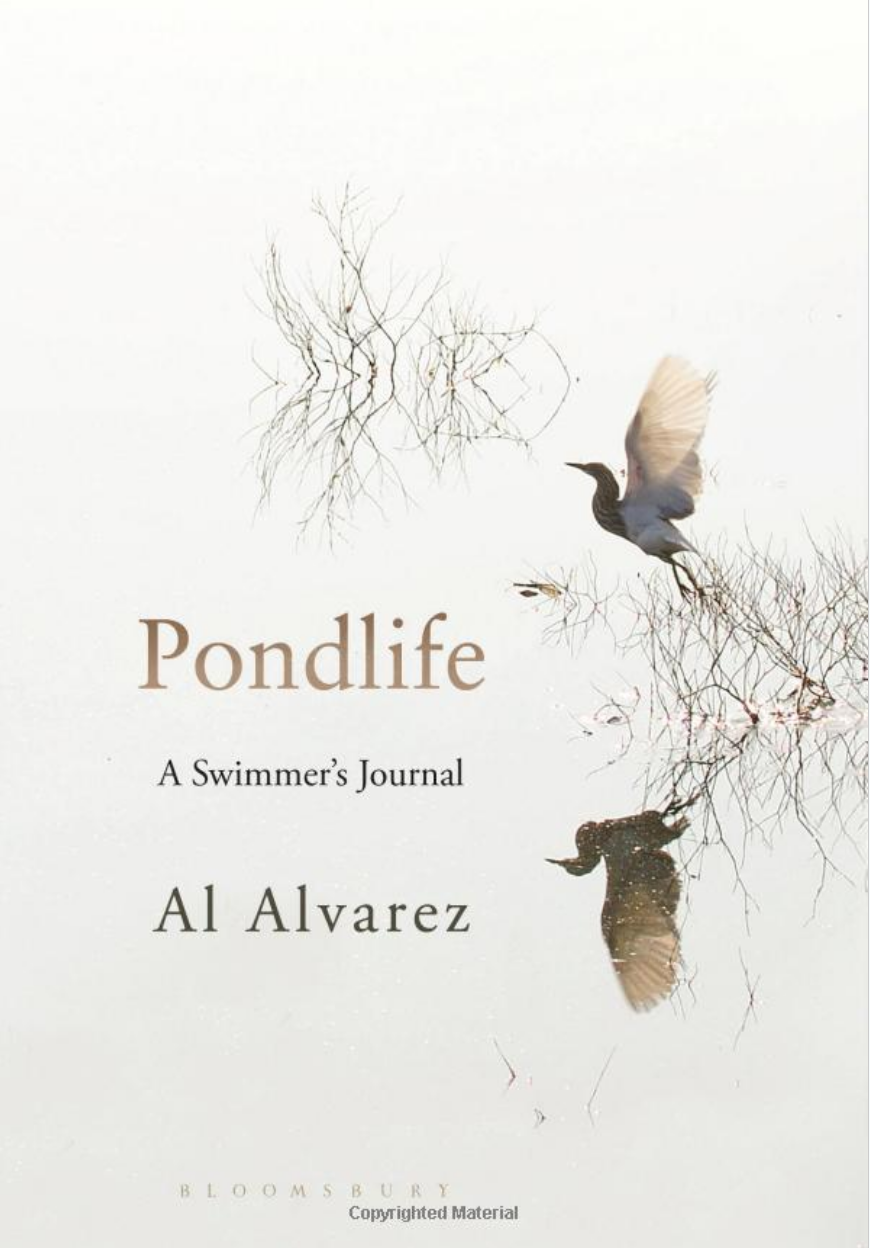 Alvarez was Eeyorish on the writer’s life, even a little disgusted. “For five or six days each week I sit at my desk and try to get the sentences right. If I make a mistake, I can rewrite it the following day or the next, or catch it in proof. And if I fail to do so, who cares? Who even notices?”
Alvarez was Eeyorish on the writer’s life, even a little disgusted. “For five or six days each week I sit at my desk and try to get the sentences right. If I make a mistake, I can rewrite it the following day or the next, or catch it in proof. And if I fail to do so, who cares? Who even notices?”
He wrote these words – and presumably checked them for mistakes – for GQ magazine in 1992. It marked a rare appearance in the local prints for an essayist whose output for three decades was mostly generated for New York publications with the funds to support large-scale prose pieces. Many of them were collected in Risky Business. When it was published in 2007, I interviewed him at his home in Hampstead. The title referred chiefly to the tightrope walk that is earning by writing, but also to the subjects of his pen portraits.
Alvarez was an avid visitor to the rock face deep into middle age. The egalitarianism of it appealed, as did the chance, as he put it, to “work things out with the body”. “The thing about me,” he says, “was I was physically very strong, and because I was an adrenalin junkie I really, truly didn’t get frightened. And so I was a very useful guy to have as number two on the rope.”
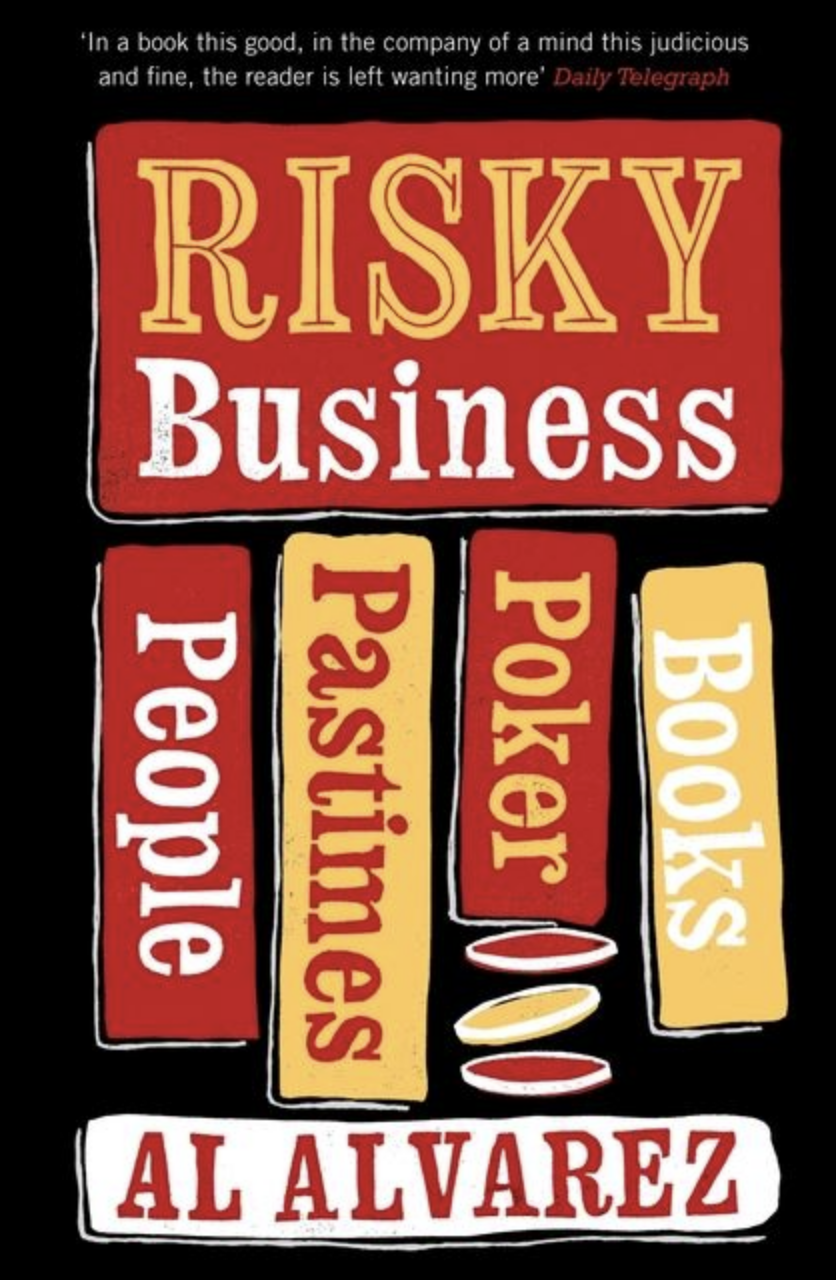 There were three novels, and volumes of poetry – muscular, full-on performances in keeping with the credo laid out in his introduction to The New Poetry, the anthology he compiled in 1962. There were books on poker players, oilriggers, climbers, divorcees and suicides. There were essays on pilots, explorers, gamblers, and a lovely one on Alfred Brendel, a Hampstead neighbour. But supporting other writers – being the second man on the rope – is what Alvarez did better than anyone.
There were three novels, and volumes of poetry – muscular, full-on performances in keeping with the credo laid out in his introduction to The New Poetry, the anthology he compiled in 1962. There were books on poker players, oilriggers, climbers, divorcees and suicides. There were essays on pilots, explorers, gamblers, and a lovely one on Alfred Brendel, a Hampstead neighbour. But supporting other writers – being the second man on the rope – is what Alvarez did better than anyone.
From 1956 he was the poetry editor of the Observer. He was the gatekeeper who introduced British readers to John Berryman, Robert Lowell and Sylvia Plath from America; Zbigniew Herbert and Miroslav Holub from Eastern Europe. “At that point,” he said, “it was the place to publish. Occasionally we used to do a whole page. Can you imagine that in a Sunday?” After a decade, he gave in his notice “because if a new Sylvia Plath work thumped through my letter box I wouldn’t be able to hear what was terrific about it. If you want to know what the young are doing, you’ve got to be young. What I see at the moment is pretty boring.”
A stocky pachyderm of a man with a raffishly thin moustache, he was intellectually spry, engaging, funny and generous – just so long as you keep him off the subject of his first marriage, when he was a brilliant student in his twenties.
“I approve of young marriages greatly, because they are a necessary preliminary to divorce, and everybody’s going to have one of them in their life.” He was actually talking about Plath and Ted Hughes, but the bon mot applies equally to his own first marriage, which ended with him attempting suicide. The barbiturates failed to do their worst, which the 30-year-old Alvarez took as permission to proceed. But his brush with death remained a pivotal influence on his literary tastes. The writers to whom he was drawn all made a furious hash of their lives. Several of them – Vladimir Mayakovsky, Berryman, Malcolm Lowry – ended up doing themselves in. Many times in his essays, Alvarez wondered whether the risks that yield great writing are really worth the candle.
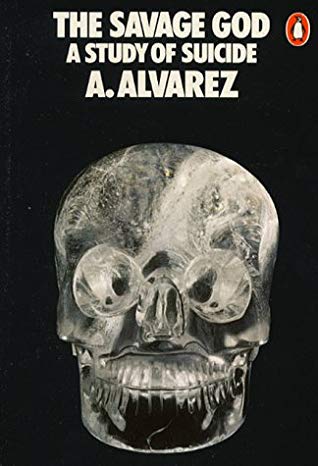 His study of suicide, The Savage God (1972), asked just this question of Plath, who wrote the poems that made up her posthumous collection Ariel after Hughes abandoned the marriage. Hughes, he said, took terrible offence at the book “for no reason at all. I just said they were temporarily apart. He took that as an indictment. I did not mention the other woman or any of that stuff.”
His study of suicide, The Savage God (1972), asked just this question of Plath, who wrote the poems that made up her posthumous collection Ariel after Hughes abandoned the marriage. Hughes, he said, took terrible offence at the book “for no reason at all. I just said they were temporarily apart. He took that as an indictment. I did not mention the other woman or any of that stuff.”
Nonetheless, there was a period when Alvarez sensed that he was being invited by Plath to step into the breach. “I only saw her as it were when she was on her best behaviour, and she and I got on terrifically. She wasn’t the sort of girl that I find wildly attractive but she had a glow about her and she was so fucking smart. But there was no way that I was in love with her. I was between marriages and was having a very promiscuous bout. But with Sylvia you could feel if you were going to get involved you’d have to get involved. All or nothing. And I was not ready for an all or nothing. The poor bitch was on her own. Above all, she needed someone to read the poetry to, because that’s what she and Ted did. She was really going places people hadn’t been, really dangerous stuff. It was high-risk art.”
Around that time Alvarez met his second wife. It is at this happy juncture that his memoir, Where Did It All Go Right? (1999), hit the fast-forward button. He grew up in a Jewish middle-class household in north London. His father was “a terribly bad and thwarted and unhappy business man in the schmutter trade”, his mother was “from a really rather rich family. He loved the idea of the son who was in the arts. But she could never get it. I think I was a terrible disappointment to her.” It was only when he got to Princeton on a visiting fellowship, after Oundle and Oxford and a DPhil on the Metaphysicals, that he stopped noticing his own Jewishness. “In England, it’s always slightly complicated being Jewish. You’d come up with some smart-arse remark and they’d say, ‘Oh he’s just a clever Jew.’”
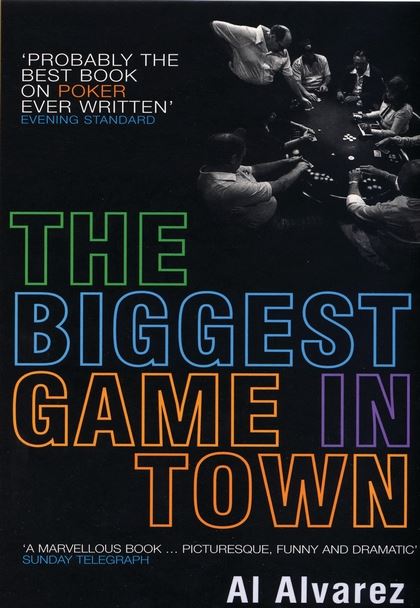 This was one attraction of poker players, in whose company he started to move and then to write about when William Shawn of The New Yorker commissioned the piece that became the cult book The Biggest Game in Town (1983). “Nobody gives a shit who you are as long as you sit down with enough money in front of you.” The other fascination of the Vegas elite is their behavioural congruence with writers. They are both cold-blooded auditors of human weakness.
This was one attraction of poker players, in whose company he started to move and then to write about when William Shawn of The New Yorker commissioned the piece that became the cult book The Biggest Game in Town (1983). “Nobody gives a shit who you are as long as you sit down with enough money in front of you.” The other fascination of the Vegas elite is their behavioural congruence with writers. They are both cold-blooded auditors of human weakness.
This was the licence Alvarez needed to stop writing exclusively about writing and migrate into milieux in which real men dice with death and (in the case of poker) debt. One of the charms of his extramural studies of macho pursuits is that they have none of the misogynistic posturing found in Norman Mailer.
“My theory about why I soft-pedalled the macho stuff is I was lucky enough to climb with some seriously good climbers. Class is class and you can recognise it, so there is no point in posturing when there are people who can read your cards. I adore what you can do with language. But I’ve always worked on the supposition that I’m only going to have one go at this planet and I just want to try what’s on offer. I’ve used writing as a way of financing doing stuff. Effectively I’m broke, but if I drop dead this minute I’ve had a terrific time. That seems to me more important than anything else. I actually do believe that it’s more important to live decently.”
Al Alvarez, 5 August 1929 - 23 September 2019
Add comment
The future of Arts Journalism
You can stop theartsdesk.com closing!
We urgently need financing to survive. Our fundraising drive has thus far raised £49,000 but we need to reach £100,000 or we will be forced to close. Please contribute here: https://gofund.me/c3f6033d
And if you can forward this information to anyone who might assist, we’d be grateful.

Subscribe to theartsdesk.com
Thank you for continuing to read our work on theartsdesk.com. For unlimited access to every article in its entirety, including our archive of more than 15,000 pieces, we're asking for £5 per month or £40 per year. We feel it's a very good deal, and hope you do too.
To take a subscription now simply click here.
And if you're looking for that extra gift for a friend or family member, why not treat them to a theartsdesk.com gift subscription?
more Books
 'We are bowled over!' Thank you for your messages of love and support
Much-appreciated words of commendation from readers and the cultural community
'We are bowled over!' Thank you for your messages of love and support
Much-appreciated words of commendation from readers and the cultural community
 Robin Holloway: Music's Odyssey review - lessons in composition
Broad and idiosyncratic survey of classical music is insightful but slightly indigestible
Robin Holloway: Music's Odyssey review - lessons in composition
Broad and idiosyncratic survey of classical music is insightful but slightly indigestible
 Thomas Pynchon - Shadow Ticket review - pulp diction
Thomas Pynchon's latest (and possibly last) book is fun - for a while
Thomas Pynchon - Shadow Ticket review - pulp diction
Thomas Pynchon's latest (and possibly last) book is fun - for a while
 Justin Lewis: Into the Groove review - fun and fact-filled trip through Eighties pop
Month by month journey through a decade gives insights into ordinary people’s lives
Justin Lewis: Into the Groove review - fun and fact-filled trip through Eighties pop
Month by month journey through a decade gives insights into ordinary people’s lives
 Joanna Pocock: Greyhound review - on the road again
A writer retraces her steps to furrow a deeper path through modern America
Joanna Pocock: Greyhound review - on the road again
A writer retraces her steps to furrow a deeper path through modern America
 Mark Hussey: Mrs Dalloway - Biography of a Novel review - echoes across crises
On the centenary of the work's publication an insightful book shows its prescience
Mark Hussey: Mrs Dalloway - Biography of a Novel review - echoes across crises
On the centenary of the work's publication an insightful book shows its prescience
 Frances Wilson: Electric Spark - The Enigma of Muriel Spark review - the matter of fact
Frances Wilson employs her full artistic power to keep pace with Spark’s fantastic and fugitive life
Frances Wilson: Electric Spark - The Enigma of Muriel Spark review - the matter of fact
Frances Wilson employs her full artistic power to keep pace with Spark’s fantastic and fugitive life
 Elizabeth Alker: Everything We Do is Music review - Prokofiev goes pop
A compelling journey into a surprising musical kinship
Elizabeth Alker: Everything We Do is Music review - Prokofiev goes pop
A compelling journey into a surprising musical kinship
 Natalia Ginzburg: The City and the House review - a dying art
Dick Davis renders this analogue love-letter in polyphonic English
Natalia Ginzburg: The City and the House review - a dying art
Dick Davis renders this analogue love-letter in polyphonic English
 Tom Raworth: Cancer review - truthfulness
A 'lost' book reconfirms Raworth’s legacy as one of the great lyric poets
Tom Raworth: Cancer review - truthfulness
A 'lost' book reconfirms Raworth’s legacy as one of the great lyric poets
 Ian Leslie: John and Paul - A Love Story in Songs review - help!
Ian Leslie loses himself in amateur psychology, and fatally misreads The Beatles
Ian Leslie: John and Paul - A Love Story in Songs review - help!
Ian Leslie loses himself in amateur psychology, and fatally misreads The Beatles
 Samuel Arbesman: The Magic of Code review - the spark ages
A wide-eyed take on our digital world can’t quite dispel the dangers
Samuel Arbesman: The Magic of Code review - the spark ages
A wide-eyed take on our digital world can’t quite dispel the dangers

Comments
He was also a terrific